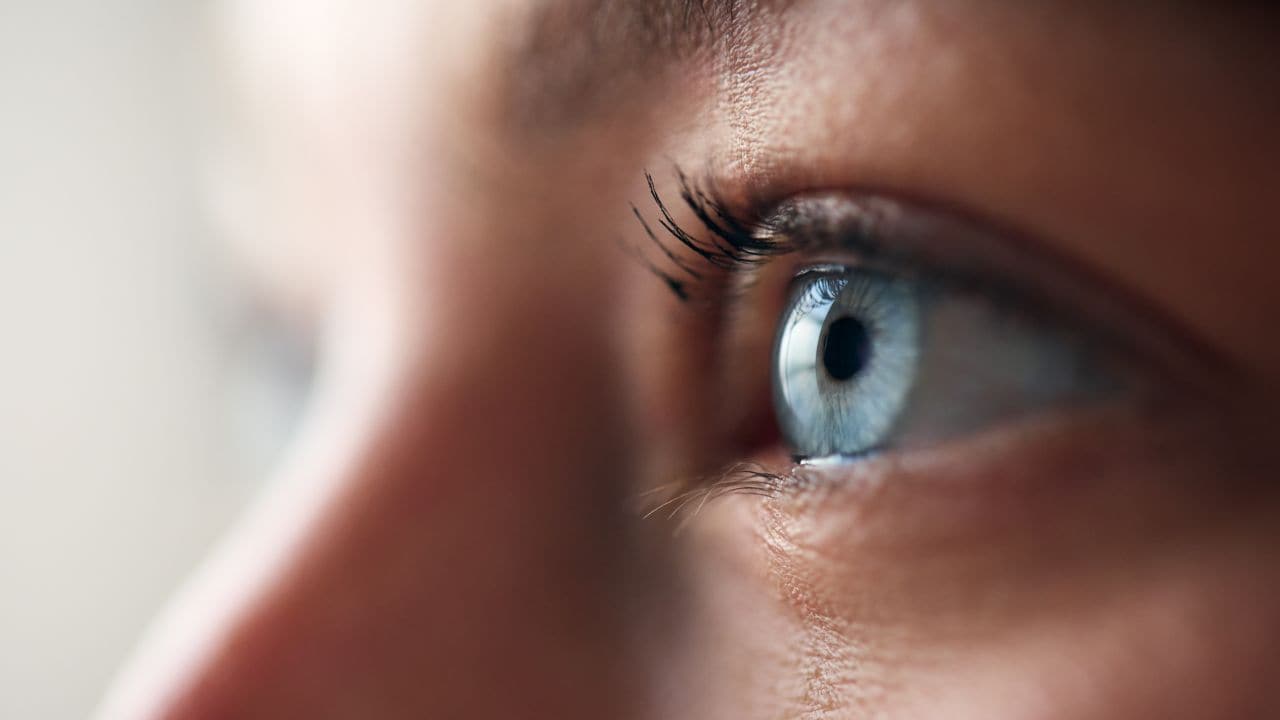Advertisement. Remove ads.
An Indian biotech company aims to restore vision

Share this article
Ever thought an Indian company could be developing a drug that restores vision? That could soon be the case with Eyestem Research, a Bengaluru- and US-based biotech company working on cell therapy for retinal diseases. Its lead program, Eyecyte-RPE, is designed to treat Geographic Atrophy—the advanced stage of dry age-related macular degeneration (AMD), a leading cause of blindness in people over 50. Globally, around 19.6 crore people live with AMD, of which nearly 50 lakh suffer from GA.
In June 2025, Eyestem announced results from its Phase 1 trial in India. The study reported no serious adverse events and showed signs of functional vision recovery, with eight out of nine patients experiencing improved vision—allowing some to read large print and recognize faces. The company has submitted the data to the Indian drug regulator the Central Drugs Standard Control Organisation or the CDSCO and is preparing to launch a Phase 2 trial in India with around 33 patients in the coming weeks. If U.S. FDA approval comes through, Eyestem will run two Phase 2 clinical trials simultaneously—one in India and one in the United States, where it plans to file an IND in 2026.
Eyestem has so far raised about $20 million across multiple funding rounds, including an oversubscribed $10 million round in 2025 backed by the likes of Biological E, Alkem, and NATCO. While out-licensing remains a possibility—especially since competitor Lineage Cell Therapeutics struck a licensing deal in 2021 valued at $670m—Eyestem’s management has indicated that licensing is not a priority as they are currently well funded.
For Eyestem the key risk ahead include the larger Phase 2 study meeting its endpoints. But they seem confident based on Phase 1 trials. And if they do hit the market, the company might have edge when it comes to pricing. Eyestem estimates treatment at around $50,000 per dose, nearly half of Lineage’s projected $100,000. Luxa Biotechnology, another U.S. player, is researching a similar drug but there is little information on price and scalability.
Lastly, if Eyestem succeeds, it could mark a significant turning point for Indian biotech—showing that Indian biotech companies can move from bench to bedside. However, it is still early days and success as always when it comes to R&D will depend on the outcome of the clinical trials
Read about our editorial guidelines and ethics policyIn June 2025, Eyestem announced results from its Phase 1 trial in India. The study reported no serious adverse events and showed signs of functional vision recovery, with eight out of nine patients experiencing improved vision—allowing some to read large print and recognize faces. The company has submitted the data to the Indian drug regulator the Central Drugs Standard Control Organisation or the CDSCO and is preparing to launch a Phase 2 trial in India with around 33 patients in the coming weeks. If U.S. FDA approval comes through, Eyestem will run two Phase 2 clinical trials simultaneously—one in India and one in the United States, where it plans to file an IND in 2026.
Eyestem has so far raised about $20 million across multiple funding rounds, including an oversubscribed $10 million round in 2025 backed by the likes of Biological E, Alkem, and NATCO. While out-licensing remains a possibility—especially since competitor Lineage Cell Therapeutics struck a licensing deal in 2021 valued at $670m—Eyestem’s management has indicated that licensing is not a priority as they are currently well funded.
For Eyestem the key risk ahead include the larger Phase 2 study meeting its endpoints. But they seem confident based on Phase 1 trials. And if they do hit the market, the company might have edge when it comes to pricing. Eyestem estimates treatment at around $50,000 per dose, nearly half of Lineage’s projected $100,000. Luxa Biotechnology, another U.S. player, is researching a similar drug but there is little information on price and scalability.
Lastly, if Eyestem succeeds, it could mark a significant turning point for Indian biotech—showing that Indian biotech companies can move from bench to bedside. However, it is still early days and success as always when it comes to R&D will depend on the outcome of the clinical trials

/filters:format(webp)https://news.stocktwits-cdn.com/large_Getty_Images_2149589805_jpg_ceec7778b8.webp)
/filters:format(webp)https://news.stocktwits-cdn.com/IMG_4530_jpeg_a09abb56e6.webp)
/filters:format(webp)https://news.stocktwits-cdn.com/large_bulls_versus_bears_stock_market_jpg_c083ddc168.webp)
/filters:format(webp)https://st-everywhere-cms-prod.s3.us-east-1.amazonaws.com/Rounak_Author_Image_7607005b05.png)
/filters:format(webp)https://news.stocktwits-cdn.com/large_Getty_Images_2215271287_jpg_e254182ae0.webp)
/filters:format(webp)https://news.stocktwits-cdn.com/shivani_photo_jpg_dd6e01afa4.webp)
/filters:format(webp)https://news.stocktwits-cdn.com/large_Getty_Images_2223867539_jpg_9153e26491.webp)
/filters:format(webp)https://st-everywhere-cms-prod.s3.us-east-1.amazonaws.com/unnamed_jpg_9dff551b50.webp)
/filters:format(webp)https://news.stocktwits-cdn.com/large_Getty_Images_1085875608_jpg_531906f650.webp)
/filters:format(webp)https://news.stocktwits-cdn.com/large_IPO_offering_resized_jpg_77ee5f67f6.webp)